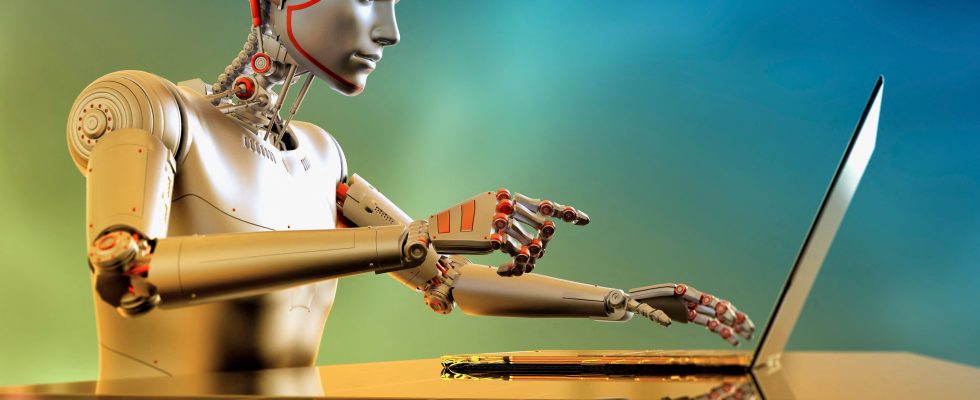Claude-Henri de Saint-Simon is a somewhat neglected thinker of the 19th century. The omission of this pre-Marxist socialist is a little unfair. First, because he had a rather extraordinary life, participating, for example, in the American War of Independence alongside La Fayette. Then, because he abandoned his title of nobility by ruining himself to financially help the scholars of his time. Finally, because he tried, in his work, to understand the emerging industrial society which was a major fact of his time. He aspired to see the emergence of a globalized society where expert institutions would make important decisions for humanity free from the passions of public opinion. Without making him a prophet, we can note that the European Union or the World Trade Organization have some characteristics that he called for. He aspired to replace – and this phrase has passed down to posterity – “the government of men with the administration of things”.
It turns out that the emergence of artificial intelligence gives a new twist to Saint-Simonian hopes. This technology already supports many human activities by correcting our judgment in many ways. It is certain that it will become an essential prosthesis for our species, but a question remains: will it be able to be so to the point of replacing human decision and offering to replace the “government of men by the administration of things” ? It would only be pure science fiction if, here and there, a few people had not taken the initiative to appoint robots at the head of their companies. And not the least.
Scapegoat
In 2023, Dictador, a Polish company present in 60 countries, revealed that it had put an AI named Mika in charge. This attracted a lot of attention and made it known that said Mika was still available and in an even mood. Her body, having taken on the features of a young blonde woman, even grants interviews to journalists! However, this is not the first artificial CEO since another female robot was entrusted, the previous year, with the title of director of a Chinese company, leader in video games: NetDragon Websoft. Be careful, Tang Yu, that’s his name, has climbed the ranks. She started working at the company in 2017 and served as the No. 2 position before becoming the first virtual digital CEO. In this company, which has several thousand employees and is worth billions of dollars, she appears on everyone’s screens in the form of a young woman dressed in a strict suit. She signs documents, presides over the destiny of projects, evaluates staff and decides on rewards or sanctions. Those who had this idea marvel at the fact that Tang Yu is not encumbered by irrational feelings and one has the impression that it is the manes of Saint-Simon which express themselves through them.
We understand that the tormented centuries in which he lived inspired in the philosopher the desire to appease the passions through cold reason. But, in doing so, are we not forgetting an essential function of politics and decision-makers in general: serving as a sacrificial leader in the event of collective failure? Whatever the regimes, isn’t politics also there to assume the part of uncertainty that cannot be overcome in any regulation of collective life?
Under these conditions, and this is a question that can be addressed to the contemporary world rather than to the 19th century philosopher: who can we blame if calamitous decisions are taken by machines? Will we one day see effigies of Mika or Tang Yu burned? It is not certain that these virtual creatures can assume the role of scapegoat that collective life so badly needs. The reverse is not guaranteed either… After all, in the past, we did not fear the ridicule of bringing trials against animals. This is how in the year 1386, in Normandy, a sow was seen hanged which had killed a young child. The judge who pronounced the sentence ordered all the other pigs to be invited to witness the execution so that it could serve as a lesson to them and so that they would not think of imitating their fellow pigs from now on.
.
